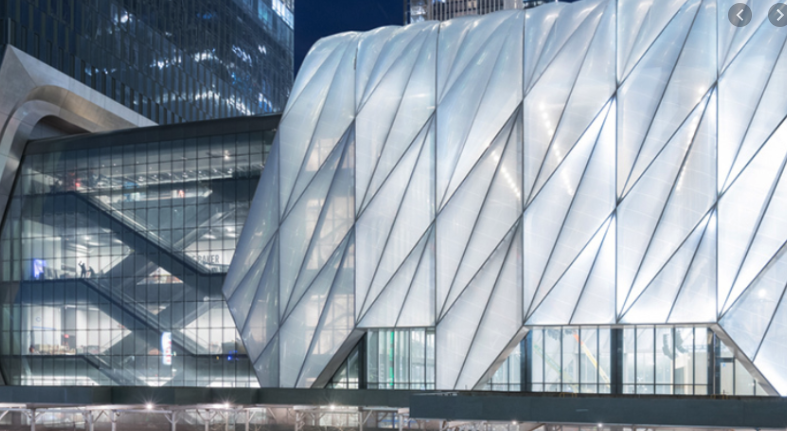Adeze Wilford is an assistant curator at The Shed who recently curated Howardena Pindell: Rope/Fire/Water. This commission is a powerful video project that addresses the white supremacy and racism that has infested the United States. Filmed in a nonlinear fashion the documentary, themes such as lynching in the 19th-century, the transatlantic slave trade, and the 1963 Children’s Crusade speak volumes to the way in which history repeats itself. Regardless, this explicit film is a testament to Pindell’s and the Black community’s resilience and decision to not conform to the subjugation that they were forcibly put under.
“[Pindell] sees her films as an activist output”
While the primary focus of the exhibition is the film, Wilford also shared a brief slide show that features the abstract paintings that accompany Pindell’s video. The work that caught my attention was her 2020 mixed media painting Columbus. This painting graphically details Columbus and his time in Hispaniola and speaks to the oppression that these people were forced to endure. Pindell’s show focuses so much on white supremacy and its impact on the black population states, but she also leaves room for the conversation about what has happened to indigenous populations as well. By including the indigenous populations and acknowledging the subjugation and the violence done against them, Wilford ties it back to the “black American experience”.

and Victoria Miro Galle
In contextualizing the show with what is happening now, Wilford explains that Pindell is feeling galvanized by the diversity of these protests because she recognizes a marked difference between the process that was happening when she was a younger woman versus what’s happening now. With a diverse demographic of people marching in the streets for black rights, this is a radical point of progress.
I was particularly drawn to Wilford’s fluidity when she talked about Pindell’s work, making me question her relationship between herself and the artists she works with. Wilford admits that navigating the relationship between curator and artist can be difficult at times. The artworld is an extremely social place so there is a certain personality you have to uphold, but you also have to remain professional as well. While Wilford has worked with a bunch of different artists with specific personalities, collaborating with Pindell has been a joyful experience for her.
“She’s incredibly gracious, … she works from a place of gratitude and so it was so easy to work with her.”

